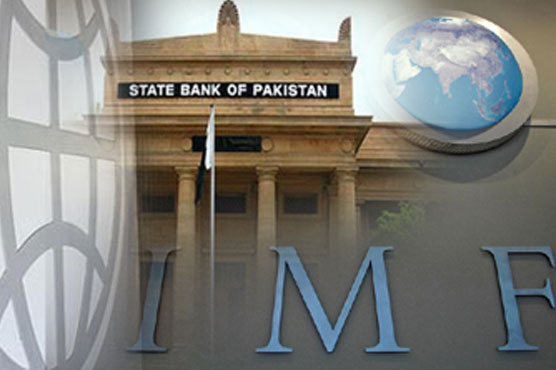IMF approves release of $501.4m loan for Pakistan

The latest disbursement is part of about 6.12 billion dollars 36-month program.
WASHINGTON (Web Desk) - The Executive Board of the International Monetary Fund (IMF) on Friday completed the sixth review of Pakistan’s economic performance under a 36-month program supported by an Extended Fund Facility (EFF) arrangement.
The Board’s decision enables the immediate disbursement of $501.4 million, bringing total disbursements under the arrangement to about $3.5 billion.
The latest disbursement is part of about 6.12 billion dollars 36-month program supported by an Extended Fund Facility arrangement, which Pakistan secured in September 2013.
At the conclusion of the Executive Board’s discussion, Mitsuhiro Furusawa, Acting Chair and Deputy Managing Director said: “The authorities` strong performance under Pakistan’s Fund-supported program is to be commended. Progress has been made in restoring economic stability, improving growth prospects, and reducing crisis risks. It will be important to build on these gains and continue determined efforts to implement the reform agenda to achieve economic transformation and higher sustainable growth”.
“Fiscal consolidation is underway through efforts to broaden the tax base and reduce costly and inefficient electricity subsidies. Scope remains to increase tax compliance and enforcement and further reduce energy subsidies, while continuing to protect the most vulnerable. Enhanced public debt management remains a priority, together with further efforts to diversify fiscal financing and reduce reliance on central bank borrowing”, he added.
He further said: “Monetary policy remains prudent and foreign exchange reserves are increasing. However, legislation to enhance central bank independence remains crucial and should conform to international best practices. Efforts to improve central bank functioning should also continue, including through improved functioning of the interest rate corridor, effective open market operations, and strengthened risk management and internal operations”.
“The financial sector remains stable and profitable and progress in bank capitalization is satisfactory. Further reforms are needed to safeguard financial stability, and a number of legislative actions are underway in this regard. Commendable efforts to combat terrorism financing, money laundering, and tax offenses have been made and would need to be sustained”.
Mitsuhiro Furusawa further remarked: “Structural reforms are progressing, albeit with some difficulties. While the power sector regulatory reform continues, progress in the gas sector has been uneven. Implementation of gas price rationalization should help better allocate current supply and encourage new production. The current environment of lower oil prices provides an opportunity to speed-up electricity tariff rationalization while continuing to improve the operations and collections of energy companies. The authorities remain committed to privatization of public sector enterprises, as well as to trade policy and business climate reforms.”

